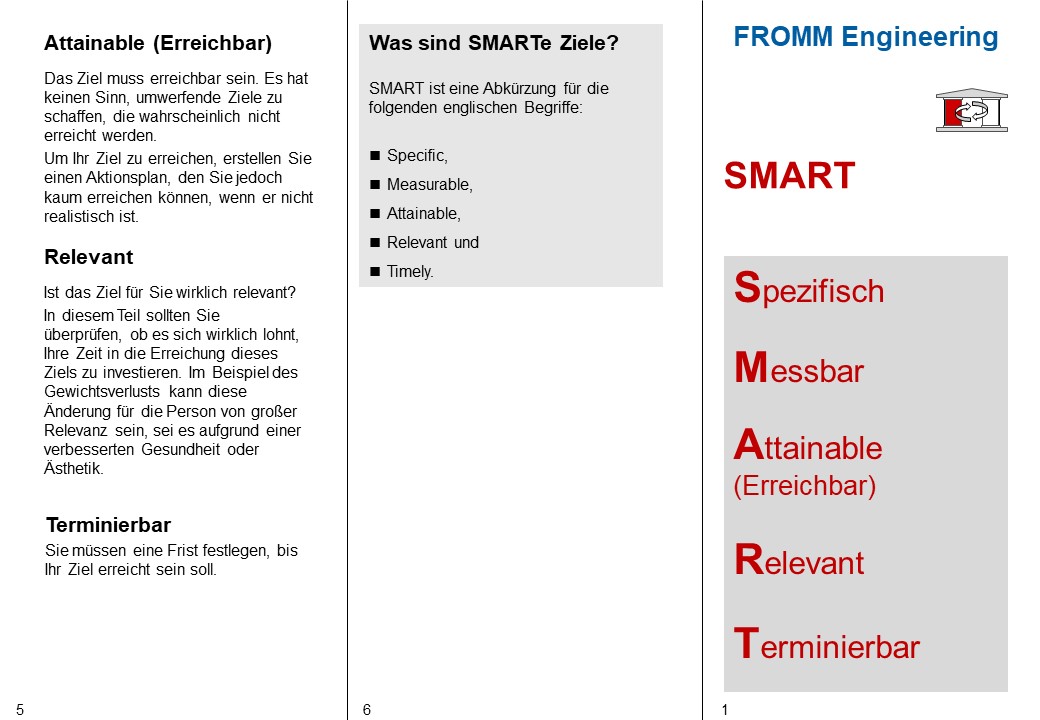SMART

SMARTE goals must meet the following criteria:
1. Goals must be specific: Employers should set goals as precisely as possible. So not: "Significant increase in sales." Instead, it is better: "An increase in sales of five percent."
2. Goals must be measurable: Goals only make sense if the employer and the employee can measure and objectively control them. With the increase in sales, that may still be easy. Here, the comparison between past sales and current figures leaves no room for interpretation. It looks different, for example, with the rather soft goal of "improving internal communication". But there are also aids here. This can be determined, for example, by the frequency of employee interviews, internal mailings or team meetings
3. Goals must be attractive or acceptable: Employees should definitely stand behind the goals that they agree with their superiors. Otherwise, the desired motivational measure becomes torture. Goals should therefore be formulated so that both employees and managers stand behind them.
4. Goals must be realistic: goals must be achievable, otherwise they unnecessarily put pressure on and demotivate rather than motivate employees. To triple the annual turnover, for example, goes completely beyond everything that can be achieved. On the other hand, it is more realistic to look at the growth of the past few years and to add one or two percentage points to the current growth forecast as the target to be achieved.
5. Goals must be timed: The goals must be achieved within a set time frame. Otherwise, the individual employee pushes his plans and plans in front of him in the worst case, but does not implement them.